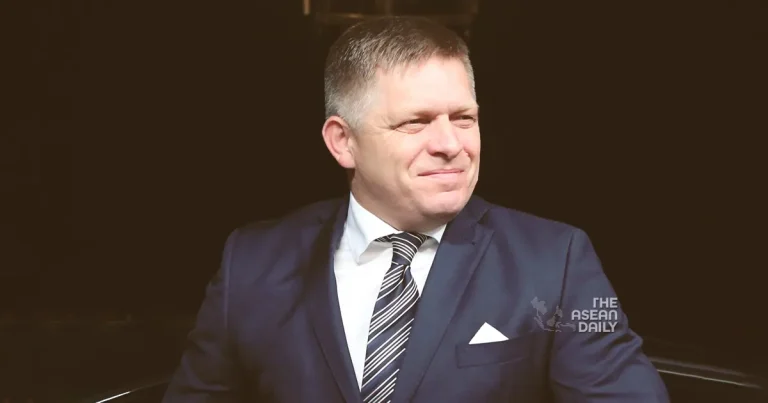1-10-2023 (BRATISLAVA) In a surprising turn of events, the populist SMER-SSD party, led by former Slovakian Prime Minister Robert Fico, has emerged as the winner of Slovakia’s election, according to the latest results released on Sunday.
Fico, known for his populist stance and critical views on the European Union and NATO, leads a party that has vowed to halt military aid to Ukraine. Despite earlier exit polls indicating a victory for the centrist Progressive Slovakia party, the final results revealed that the SMER-SD party secured 23.3% of the votes, surpassing Progressive Slovakia’s 17% with nearly all votes counted.
If Fico succeeds in forming a majority coalition, he will assume leadership of the European nation for the fourth time. Sociologist Michal Vasecka from the Bratislava Policy Institute described Fico as a skillful wielder of power, stating, “Fico is a technician of power, by far the best in Slovakia. He does not have a counterpart at the moment.” Vasecka further noted Fico’s ability to closely monitor public opinion and understand societal dynamics.
The HLAS (Voice) party, with just over 15% of the vote, holds a significant position as a potential kingmaker in the formation of the next government. SMER-SSD, projected to secure 42 seats in the 150-member parliament, will need coalition partners to establish Slovakia’s new government. HLAS, expected to secure approximately 27 seats, could play a pivotal role as a coalition partner.
Party leader Peter Pellegrini acknowledged HLAS’s crucial role, stating, “The distribution of seats confirms HLAS as a party without which any normally functioning government coalition cannot be put together.” Pellegrini indicated that his party does not have a specific preference for any coalition or combination.
While Pellegrini hinted at a potential alliance with Fico, Progressive Slovakia party leader Michal Simecka has not abandoned hope of forming the next government. Simecka expressed his party’s goal of establishing a stable, pro-European government in Slovakia.
Foreign policy disagreements have been a prominent feature of the electoral campaigns. Fico has stated that if his party returns to power, Slovakia will continue to support Ukraine but refrain from providing arms or ammunition. Critics have labeled him as pro-Russian, a claim he vehemently denies. A Progressive Slovakia government would maintain the current level of support for Kyiv.
Sociologist Michal Vasecka attributed Fico’s success to the prevailing anxiety caused by the pandemic and the conflict in Ukraine, which fueled public anger over the past three years. Slovakia currently grapples with the eurozone’s highest inflation rate of 10% and a financially strained healthcare system.
Fico has garnered support from those dissatisfied with the previous ruling coalition, which collapsed last year, leading to early elections.




